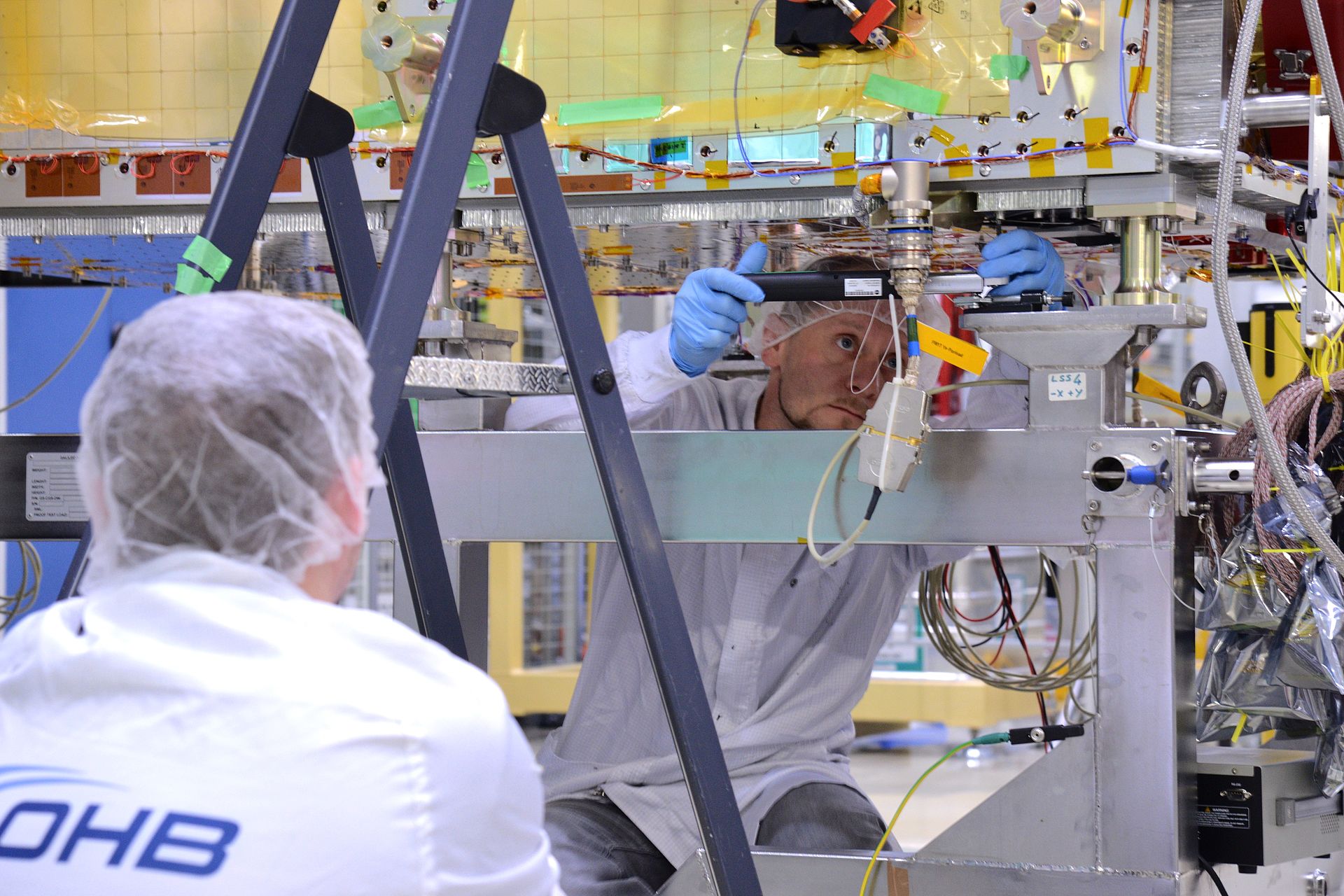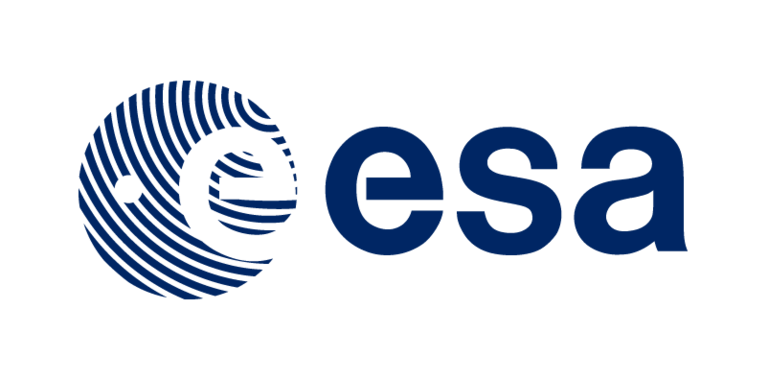
Bremen, December 7, 2020. Series production of the satellites for the European Galileo navigation system has taken a major step forward: FM23 and FM24 have successfully completed environmental impact testing at the Space Research and Technology Center of the European Space Agency (ESTEC) in Noordwijk, Netherlands. The first two Batch 3 satellites are expected to be launched jointly from the Kourou Space Center in summer 2021.
Hot and cold: rigorous testing regime for FM23 and FM24
At ESTEC, the navigation satellites underwent extensive environmental impact testing, including a thermal vacuum test, in which the satellites have to prove themselves in a hot as well as icy-cold environment. This was followed by EMC (electromagnetic compatibility) and high-frequency tests. “The general aim was to demonstrate that the satellites can withstand the rigors of a rocket launch and the extreme conditions in orbit. During the launch phase, they are shaken vigorously and exposed to extreme noise. After an extensive stay in the test chambers, the satellites underwent final functional testing. For this purpose, each satellite is booted up and checked to determine whether it has successfully passed the test campaign and all systems are operating as they should,” explains Carlo Vasalli, the responsible head of the test campaign.
OHB & SSTL – a proven partnership over a period of thirteen years
Lars Peters, Galileo production manager at OHB, was very satisfied with the progress of the work in Bremen, where Batch 3 series production is in full swing despite the ongoing pandemic: “Several other satellites are ready and currently awaiting their imminent shipment to Noordwijk.” At the end of November, the final navigation payload for Batch 3 was delivered by SSTL, a partner with which OHB works. SSTL is responsible for engineering and assembling the navigation payloads based on European atomic clocks, navigation signal generators and high-performance traveling wave tube amplifiers. Integrating the payload is of crucial importance for the entire series production as well as for each individual satellite, because it is the “heart” of a satellite.
Phil Brownnett, SSTL’s Managing Director, said: “SSTL has played a key role in the development of the Galileo programme since the launch of the GIOVE-A satellite in 2005 which secured the frequency filing for the constellation, and I am extremely proud of the expertise and dedication of our team in delivering a total of 34 navigation payloads for the first generation of Galileo satellites over the past 10 years. I wish to thank all our colleagues at OHB and ESA, and our payload subcontractors, who have worked with us as one team to deliver the Galileo constellation into service. ” In a statement marking the shipment of the final payload, Paul Verhoef, ESA Director of Navigation, congratulated SSTL, highlighting in particular “the commitment and professionalism that have made a substantial contribution to making Galileo a success story.”
"The Full Operational Capability phase of the Galileo programme is managed and fully funded by the European Union. The Commission and ESA have signed a delegation agreement by which ESA acts as design and procurement agent on behalf of the Commission. The views expressed in this Press Release can in no way be taken to reflect the opinion of the European Union and/or ESA. “Galileo” is a trademark subject to OHIM application number 002742237 by EU and ESA."
Contact for media representatives:
Marianne Radel
Head of Corporate Communications
Phone: +49 421 2020 9159
Email: marianne.radel@ohb.de
Contact for investors and analysts:
Marcel Dietz
Investor Relations
Phone: +49 421 2020 6426
Email: ir@ohb.de

